Ata-ul-Haye Nasir, Al Hakam
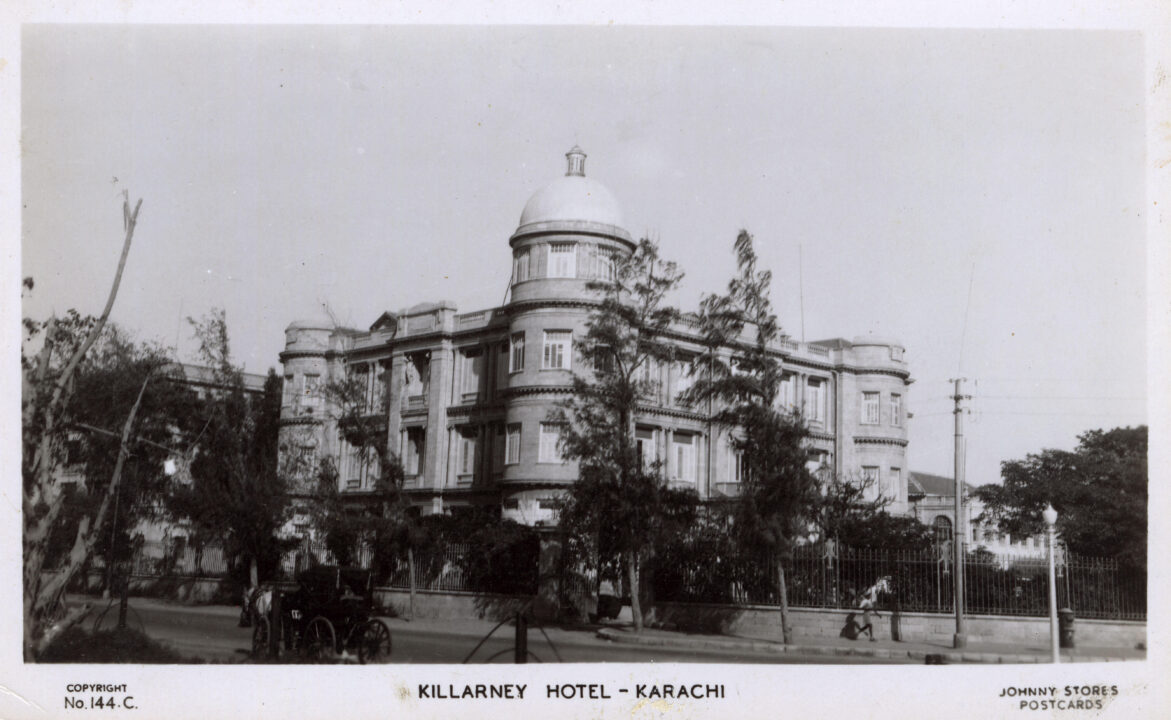
In 1936, Hazrat Musleh-e-Maud, Mirza Bashiruddin Mahmud Ahmadra, visited various places in Sindh, including Karachi. It was his first visit to Karachi, which he reached on 16 February 1936. (Tarikh-e-Ahmadiyyat Karachi, Vol. 1, p. 63)
Jamaat-e-Ahmadiyya Karachi organised a reception in Huzoor’s honour, at the Killarney Hotel on 17 February. The event was attended by many local Muslims, Hindus, Parsis, Sikhs and Christians, and various dignitaries, including the then Mayor of Karachi Municipal Corporation (KMC) Qazi Khuda Bakhsh, Additional Judicial Commissioner Mr Haveliwala, Mr DP Dastur, former Mayor of KMC Mr Tikamdas Wadhumal, Dr Saeed, Mr and Mrs Hatim A Alvi, Mr Hatim Tyabji barrister-at-law, Mr Muhammad Aslam barrister-at-law, famous entrepreneur Seth Shivratan Chandraratan Mohatta, honourary magistrate Sirdar Pratap Singh Sethi, president of the local Mahasabha Dr Hingorani, president of the local Arya Samaj Mr Ram Sahai, editor of the Daily Gazette Mr David, and editor of The Sind Observer.
During his address, Hazrat Musleh-e-Maudra said he wished to advise the people of the Sindh Division in general and Karachi in particular.
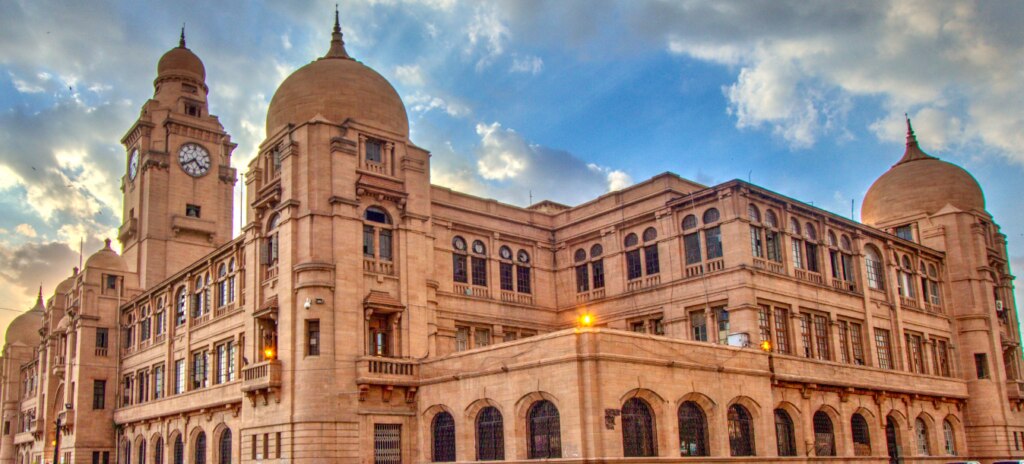
Huzoorra said the phenomenon of dissent and diversity could not completely disappear from this world, whether it was religious, social, academic or economic. For instance, Huzoorra said, it was a fact that even the children of the same father differed in their physical appearance – with some exceptions – in the same way, it was impossible to see complete affinity between the natures of all people of the world and the elimination of disagreements altogether.
However, mankind needed to realise that they had been created by One God, and if they realised this, then nothing could halt them from harbouring mutual harmony and amity, despite having religious or social disagreements. As the spiritual progeny of the One God, mankind was required to treat each other with love, affection and brotherhood.
Huzoorra continued by saying that undoubtedly, all religions were from God Almighty, as far as their teachings were concerned. However, their followers distorted those teachings to such an extent that one found a stark difference between the original teachings of those religions and the actions of their followers.
Huzoorra said people might have disagreements with the beliefs of others, however, it was utterly wrong to initiate hostilities due to those disagreements.
Huzoorra narrated an incident from the life of the Holy Prophetsa, when he permitted a Christian delegation from Najran to perform their worship in his mosque:
“By exhibiting such an example of morality […] the Holy Prophetsa has taught us a highly precious lesson, that we should never abandon mutual tolerance due to our religious disagreements.
“Keeping in mind this incident – while laying the foundation of the London Mosque [Fazl Mosque] in 1924 – I had announced that if a person belonging to any religion or community wished to perform their respective worship in that mosque, they would be allowed to do so, provided they abided by the mosque’s sanctity.
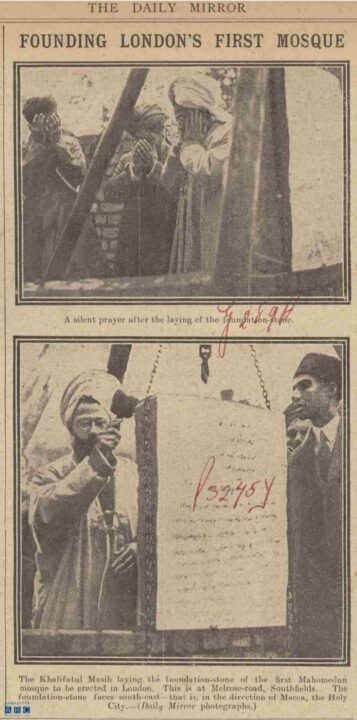
“I recall that when I made this announcement, the European [guests] were astonished and expressed that ‘we had thought that the Muslims only think about killing others, however, you have presented such a [peaceful] teaching.’ […]
“One of the many favours of the Ahmadiyya Community’s founder [Hazrat Mirza Ghulam Ahmadas] is that he presented a very beautiful pathway to create peace amongst various sects and communities. In many of his books and speeches, he mentioned the Quranic verse:
وَاِنۡ مِّنۡ اُمَّةٍ اِلَّا خَلَا فِيۡهَا نَذِيۡرٌ
“‘And there is no people to whom a Warner has not been sent.’ [Surah Fatir, Ch.35: V.25]
“In light of this teaching, he would always say he believed in the prophets of Hindus and Christians as well, since it was proof of the Holy Quran’s truthfulness.
“If we declare this teaching of the Holy Quran as our fundamental [belief], which has been emphasised by the founder of the Ahmadiyya Community, then half of our disputes would cease to exist.” (Al Fazl, 26 February 1936, p. 4)
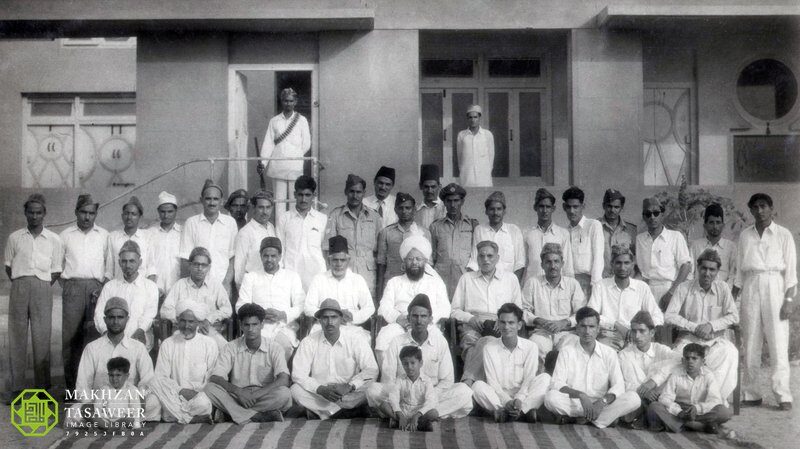
Huzoorra continued by saying that since God was Rabb-ul-‘Alamin (Lord of all worlds), He was the Lord and Provider of the followers of all religions, whether Hindus, Muslims, Jews or Christians:
“Therefore, we should respect and honour the holy personages of each other, since this would ensure our own holy personages are respected and honoured as well.” (Ibid)
Huzoorra said the people of Sindh Division – despite their religious disagreements – were required to foster healthy relations from social, academic and economic perspectives. They needed to realise they were all the servants and the creation of the One God:
“You would very soon be allocated a separate province. Thus, you are required to set an example of mutual harmony and unity, and to show the world that even a newly formed province can lead the way for already existing provinces.” (Al Fazl, 20 February 1936, p. 2)
Huzoorra further said:
“In some instances, the younger brothers become the beacon for their elder brothers, in the same way, I advise you to raise the level of your academic, economic and social harmony so much so that this small [future] province turns into the most impactful one, and set an example for the other [provinces].” (Al Fazl, 26 February 1936, p. 4)
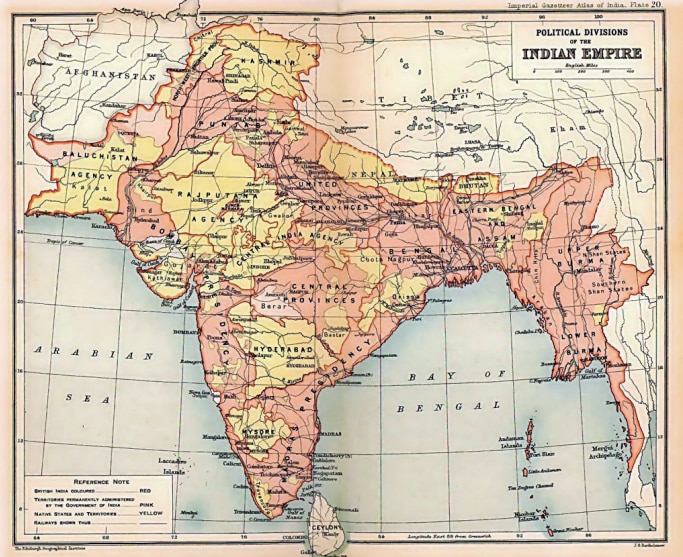
Six weeks later, on 1 April 1936, the Sindh Division was separated from the Bombay Presidency, becoming a new province within British India.
Huzoorra said that the Promised Messiahas had emphasised the Quranic teaching “And there is no people to whom a Warner has not been sent”, and always advocated religious harmony, but his opponents raised false allegations that he had dishonoured the prophets. However, it is known that the people did not value a prophet’s teachings during his lifetime, but after a certain time, the progeny of those opponents were able to realise the mistake of their elders and testified to the fact that their elders had rejected the teaching, which was the only pathway for their betterment and salvation.
Huzoorra said that in order to achieve true success, one had to endure suffering and hardships, and thus, the founder of the Ahmadiyya Community and his followers had to face severe opposition and afflictions.
Huzoorra continued:
“I agree that disagreements can never cease to exist altogether, however, I have never expressed hate towards any Hindu, Sikh or Christian. […] Currently, my age is 47 years, and there has not been a single moment when my heart had a sentiment of animosity towards anyone. […]
“Therefore, I wish to advise the people of Sindh that they should respect each other, despite their religious disagreements. […]
“Though one should always dislike vices, it is unfair to hate the people who indulge in them. If it is necessary to sympathise with a physically ill person, then spiritually ailing people require even more care. […]
“Our Allah – Who is the Master of all the worlds – declares Himself to be the Lord of all the peoples, thus, there is no reason for us to hate any of them. If we [wish to] follow the pathway taught by Our Lord, then we are obliged to respect other people.” (Ibid)
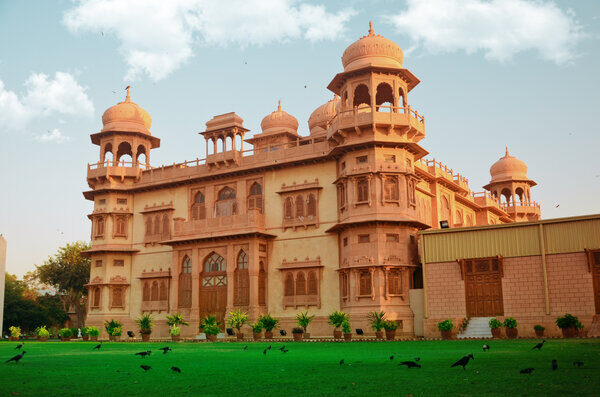
A tea party
During the same tour, on 19 February 1936, Mr Hatim Badruddin Tyabji – a prominent jurist of the Indian subcontinent – invited Huzoorra to a tea party at his home, at which local dignitaries were also present. At the request of the host, Huzoorra delivered a speech as well.
During his speech, Huzoorra emphasised that Muslims needed to study the attributes of Allah mentioned in the Holy Quran and make an effort to instil those attributes within themselves. (Al Fazl, 25 February 1936, p. 1)
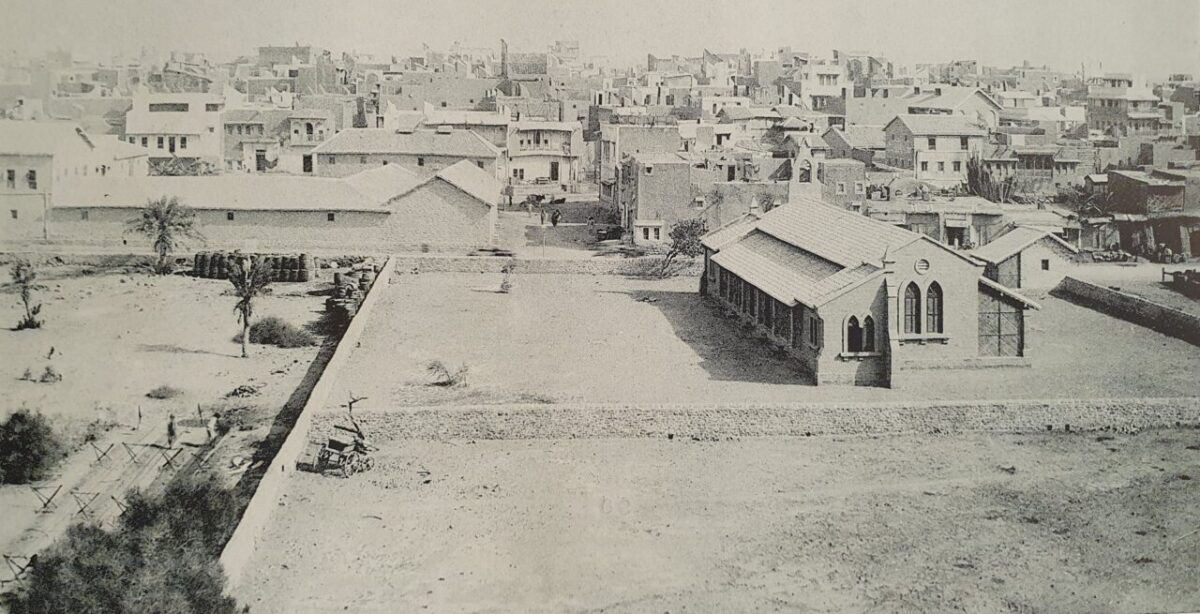
A poem
Two years later, during his speech at the Jalsa Seeratun Nabisa on 11 December 1938, Hazrat Musleh-e-Maudra recalled the above-mentioned tour of Karachi and said:
“During my visit to Karachi around two years ago, one day there was a breeze coming from Arabia, which moved my heart so much that I commented that ‘this breeze is coming from that place where the Holy Prophetsa had resided’. Then, I got occupied with these imaginations, and I said a few couplets spontaneously, which I immediately wrote down. In those couplets, I expressed my feelings in very simple words, without involving any poetic self-praise. After that, I got occupied with my routine work and could not add more couplets. Anyway, when the breeze came, I said:
سمندر سے ہوائيں آرہی ہيں
مِرے دل كو بہت گرما رہی ہيں
عرب جو ہے مِرے دِلبر كا مسكن
بوئے خوش اُس كی لے كر آرہی ہيں
بشارت دينے سب خوردو كلاں كو
اُچهلتی كُودتی وه جارہی ہيں
“‘[My heart is being invigorated by the breezes from the sea, for they carry the fragrance of Arabia, my Beloved’s home and bring glad tidings to all, as they blow here and there.]’” (Review of Religions [Urdu], June 1939, pp. 4-5)
These couplets exhibit Hazrat Musleh-e-Maud’sra deep love for the Holy Prophetsa.

